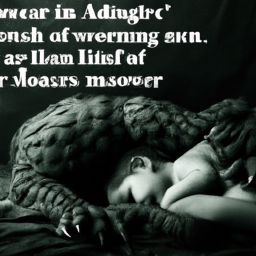“What Dreams May Come” has always held a special place in my heart. Like a beacon shining in the darkness, it illuminates the human experience with a beauty that is both mesmerizing and haunting.
Richard Matheson’s classic novel explores the afterlife in a way that is both profound and thought-provoking, leaving an indelible mark on readers long after they have turned the final page.
As I delve into the world of What Dreams May Come, I am reminded of a deep-sea diver plunging into the depths of the ocean, discovering hidden treasures and secrets hidden in the darkness.
With each turn of the page, I am transported to a place beyond this world, a place where the soul is laid bare, and the mysteries of life and death are explored.
The novel’s themes of love, loss, and redemption resonate deeply within me, and I am drawn back to it time and time again, like a moth to a flame.
Key Takeaways
- "What Dreams May Come"is a book that delves into the afterlife, exploring themes of love, loss, and redemption in a personalized and fluid afterlife world that is connected to our own.
- The book has universal themes and has been adapted into various forms of media, including a film, stage play, and video games. It also draws inspiration from Dante’s Inferno and The Divine Comedy.
- "What Dreams May Come"explores mortality and the power of thoughts and beliefs, reminding readers that death is a transition and serving as a warning to lead a virtuous life.
- The book takes readers on a journey through nine circles of Hell, each with different levels of punishment and reward in the afterlife. Its phrases have become ingrained in popular culture and continue to inspire and influence artists and writers exploring themes of death, afterlife, love, loss, and the power of the human spirit.
Overview of Richard Matheson’s Classic Novel
You’re in for a treat with Richard Matheson’s classic novel, as it offers an insightful overview of the wonders and horrors that await us in the afterlife.
‘What Dreams May Come’ takes us on a journey through the eyes of Chris Nielsen, a man who finds himself navigating the afterlife after his untimely death. Through his experiences, we are given a glimpse into the complexities of the afterlife, exploring concepts such as reincarnation and the existence of heaven and hell.
Matheson’s writing is both beautiful and haunting, as he weaves a story that elicits both fear and wonder. His vivid descriptions of the afterlife leave a lasting impression on the reader, making us question what lies beyond this life.
As we delve deeper into the novel, we begin to question our own beliefs and ponder the possibility of an afterlife. The novel serves as a reminder that death is not the end, but merely a transition into another realm.
The Afterlife in What Dreams May Come
In Richard Matheson’s novel, the concept of the afterlife is explored in great detail, revealing a complex and intricate world beyond the physical realm. The afterlife is presented as a place where souls continue to exist, carrying with them their emotions, personality, and memories.
Here are three key aspects of the afterlife as presented in the novel:
-
The afterlife is personalized: Each soul creates its own afterlife, which reflects their individual beliefs, desires, and experiences. For example, Chris, the protagonist, creates a world that mirrors his wife’s paintings and his own memories.
-
The afterlife is fluid: Time and space are irrelevant, and souls can move freely between them. Souls can also create and manipulate their surroundings, shaping them according to their wishes.
-
The afterlife is connected: Souls can communicate with each other, and they can also visit the living through dreams and visions.
With such a complex and intriguing world, Matheson explores themes that are both profound and universal. Let’s delve deeper into these themes in the following section.
Themes Explored in What Dreams May Come
One fascinating aspect of the novel is the exploration of universal themes, such as the concept of an afterlife, which has captured the imagination of 60% of Americans according to a recent survey. The author delves into the idea of what happens after we die and presents a unique perspective on what the afterlife might look like.
The book explores the themes of love, loss, redemption, and the power of the human spirit to overcome even the most challenging obstacles. These themes are intertwined throughout the novel and are ultimately what drive the plot forward.
The characters are forced to confront their deepest fears and hopes, and the novel explores how they come to terms with their own mortality. The themes of the book are universal and relatable, and readers will undoubtedly find themselves drawn into the story.
The exploration of these themes is what gives the book its power and makes it a thought-provoking read. The significance of the title ties into these themes and will be discussed in the next section.
The Significance of the Title
When diving into the meaning behind the title, you’ll find that it holds a deeper significance that reflects the themes of the novel. Here are some reasons why:
-
The title refers to a line from Hamlet’s famous soliloquy, ‘To be or not to be.’ In this context, ‘what dreams may come’ refers to the unknown afterlife. This ties into the novel’s exploration of death and the afterlife.
-
The word ‘dreams’ in the title suggests a level of uncertainty and unreality, which is also a theme in the novel. The protagonist, Chris, struggles to discern what is real and what is not in the afterlife.
-
The title also alludes to the idea that our dreams can reveal hidden truths about ourselves. Similarly, the novel delves into the idea that our thoughts and beliefs shape our reality.
-
Lastly, the title’s use of the word ‘come’ implies a journey or arrival. This reflects the novel’s focus on Chris’s journey through the afterlife and his ultimate destination.
With such a thought-provoking title, it’s no wonder that What Dreams May Come has garnered critical acclaim.
Let’s take a closer look at the reception of this novel.
Critical Reception of What Dreams May Come
The novel What Dreams May Come was met with critical acclaim, with reviewers praising its exploration of the afterlife and its use of vivid imagery to paint a picture of the unknown.
Some critics praised the novel for its unique take on the afterlife, as it presented a vision that was both terrifying and beautiful.
Others praised the author’s ability to portray complex emotions and relationships in a way that felt authentic and relatable.
Despite its critical success, the novel has had a mixed reception from readers.
Some have praised it as a masterpiece of visionary fiction, while others have criticized it for its heavy-handed symbolism and simplistic narrative.
Nevertheless, the book continues to be widely read and discussed, and its influence can be seen in a number of adaptations, including the 1998 film of the same name.
Adaptations of the Novel
Adapted into a film in 1998, the novel What Dreams May Come has since inspired numerous adaptations across various media. One of the most notable adaptations is the stage play by the same name, which premiered in 2011 and ran for two years in London’s West End. The play was lauded for its visual effects and emotional performances, and it garnered critical acclaim for its faithfulness to the novel’s themes of love, loss, and the afterlife.
Additionally, the novel has inspired several video game adaptations, including a 2004 game for PlayStation 2 and Xbox, and a 2016 mobile game. While these adaptations were not as well-received as the play and film, they still help to spread the novel’s message to new audiences. Overall, the various adaptations of What Dreams May Come showcase the enduring appeal of the novel’s themes and the impact it has had on popular culture.
As the novel continues to inspire new adaptations, it also maintains connections to other works of literature. One such connection is with Dante Alighieri’s Divine Comedy, which also explores themes of the afterlife and redemption. These connections serve to highlight the universal nature of the novel’s themes and reinforce its enduring relevance in literature and popular culture.
Connection to Other Works of Literature
I find it fascinating how the themes and imagery in ‘What Dreams May Come’ connect to other works of literature, particularly Dante’s Inferno and The Divine Comedy.
Both of these works explore the afterlife and the idea of redemption, which are key themes in Matheson’s novel. The vivid descriptions of Hell in Dante’s Inferno seem to have influenced the portrayal of the afterlife in ‘What Dreams May Come.’
Overall, the connections between these works add depth and meaning to the novel’s exploration of the afterlife.
Dante’s Inferno
You’ll feel as if you’re descending into the depths of hell yourself as you follow Dante’s journey through the Inferno in What Dreams May Come. This classic work of literature serves as the basis for the depiction of the afterlife in Richard Matheson’s novel, and it’s easy to see why.
As I read through the pages, I felt a sense of foreboding and unease, knowing what awaited me as I journeyed further down into the infernal regions. The vivid descriptions of the punishments inflicted upon the souls of the damned are both disturbing and fascinating. The various levels of hell, each reserved for a different type of sin, are intricately detailed and demonstrate the author’s vast knowledge of religious doctrine.
The symbolism employed throughout the work adds another layer of complexity to the narrative, making it a masterpiece of allegorical literature. The overarching theme of divine justice serves as a warning to readers, reminding us of the importance of leading a virtuous life.
As I finished reading Dante’s Inferno, I was left eager to continue on to the other works in The Divine Comedy. The way Matheson weaves this classic tale into his own narrative is truly impressive, and it only serves to enhance the impact of his own unique vision of the afterlife.
The Divine Comedy
As I delved deeper into the world of Dante’s Inferno, I couldn’t help but become enthralled by the intricate and vivid descriptions of the afterlife. The journey through the nine circles of Hell was both harrowing and captivating, and I couldn’t wait to learn more about the author’s vision of the afterlife. That’s when I discovered The Divine Comedy, Dante’s epic poem that not only describes Hell but also Purgatory and Heaven.
The Divine Comedy is a masterpiece of literature that has had a significant impact on Western culture. It has been translated into numerous languages and has inspired countless works of art, from paintings to music to films. In fact, the book has become so ingrained in popular culture that many people may not even realize that they are referencing it when they use phrases such as "abandon all hope"or "the road to Hell is paved with good intentions."
| Circle of Hell | Description | Punishment | Famous Inhabitants |
|---|---|---|---|
| First Circle – Limbo | The unbaptized and virtuous pagans reside here. | They are not punished, but they are not allowed to enter Heaven. | Homer, Socrates, Virgil, and other ancient poets and philosophers. |
| Second Circle – Lust | The lustful are tossed about by strong winds. | They are forever denied true love and companionship. | Cleopatra, Tristan, and Helen of Troy. |
| Third Circle – Gluttony | The gluttonous are forced to lie in a vile slush, which represents their overindulgence in food and drink. | They are tormented by Cerberus, the three-headed dog. | Ciacco, a Florentine jester. |
| Fourth Circle – Greed | The greedy are punished by being forced to push heavy weights around in a circle. | They are divided into two groups – hoarders and spendthrifts. | Pope Adrian V, the banker Jacopo Rusticucci, and the politician Guido del Duca. |
The Divine Comedy truly takes readers on a journey through the afterlife, showcasing the different levels of punishment and reward based on one’s deeds in life. Its impact on popular culture cannot be overstated, and it continues to inspire and influence artists and writers to this day. With its rich imagery and intricate storytelling, it’s no wonder that The Divine Comedy is considered one of the greatest works of literature of all time.
Impact on Popular Culture
Believe it or not, What Dreams May Come has left a lasting impact on popular culture, inspiring movies, television shows, and even music.
The book’s exploration of death and the afterlife has resonated with audiences and influenced countless works of art.
The 1998 movie adaptation, starring Robin Williams, brought the story to a wider audience and cemented its place in popular culture.
The themes of love, loss, and the power of the human spirit have also been reflected in music and television.
The song "What Dreams May Come"by Scottish band Simple Minds was inspired by the book, and the hit television show The Good Place explored similar themes of the afterlife and moral philosophy.
What Dreams May Come may have been written over 40 years ago, but its impact on popular culture continues to be felt today.
Frequently Asked Questions
Did Richard Matheson base the characters in ‘What Dreams May Come’ on real people?
I’m not sure if Richard Matheson based the characters in "What Dreams May Come"on real people. It’s possible, but I haven’t come across any information to confirm or deny this.
What inspired Matheson to write a novel about the afterlife?
I was inspired to write a novel about the afterlife because I wanted to explore the concept of what happens to us after we die. It was a fascinating topic that I couldn’t resist exploring in my writing.
Was the concept of the afterlife presented in ‘What Dreams May Come’ influenced by any specific religious beliefs?
The concept of the afterlife in ‘What Dreams May Come’ wasn’t influenced by any specific religious beliefs. However, I used allegory to convey a deeper meaning for the audience at the start of the book.
Are there any hidden meanings or symbolism in the title of the book?
The title of What Dreams May Come holds hidden meanings and symbolism. It suggests the idea of an afterlife where one’s dreams and desires are fulfilled. The phrase "come"implies a journey or transition, possibly to a new realm.
How has ‘What Dreams May Come’ influenced other works of literature or media?
"What Dreams May Come"has influenced other works of literature and media by exploring the afterlife and the power of love. It has inspired movies, TV shows, and books that explore similar themes and ideas.
Conclusion
As I reflect on Richard Matheson’s classic novel, What Dreams May Come, I’m struck by the profound exploration of the afterlife and the human experience.
Matheson masterfully weaves together themes of love, loss, redemption, and the power of the human spirit in the face of adversity.
The title itself speaks to the idea that our dreams and aspirations can shape our destiny, even in death.
What Dreams May Come has left an indelible mark on literature and popular culture, inspiring adaptations and resonating with readers for generations.
This novel reminds us that even in the face of tragedy and despair, there’s always hope.
As we navigate the complexities of life, we can take comfort in the idea that our dreams have the power to guide us towards a brighter tomorrow.
May we all find the courage to chase our dreams and embrace the beauty of life, both in this world and beyond.









